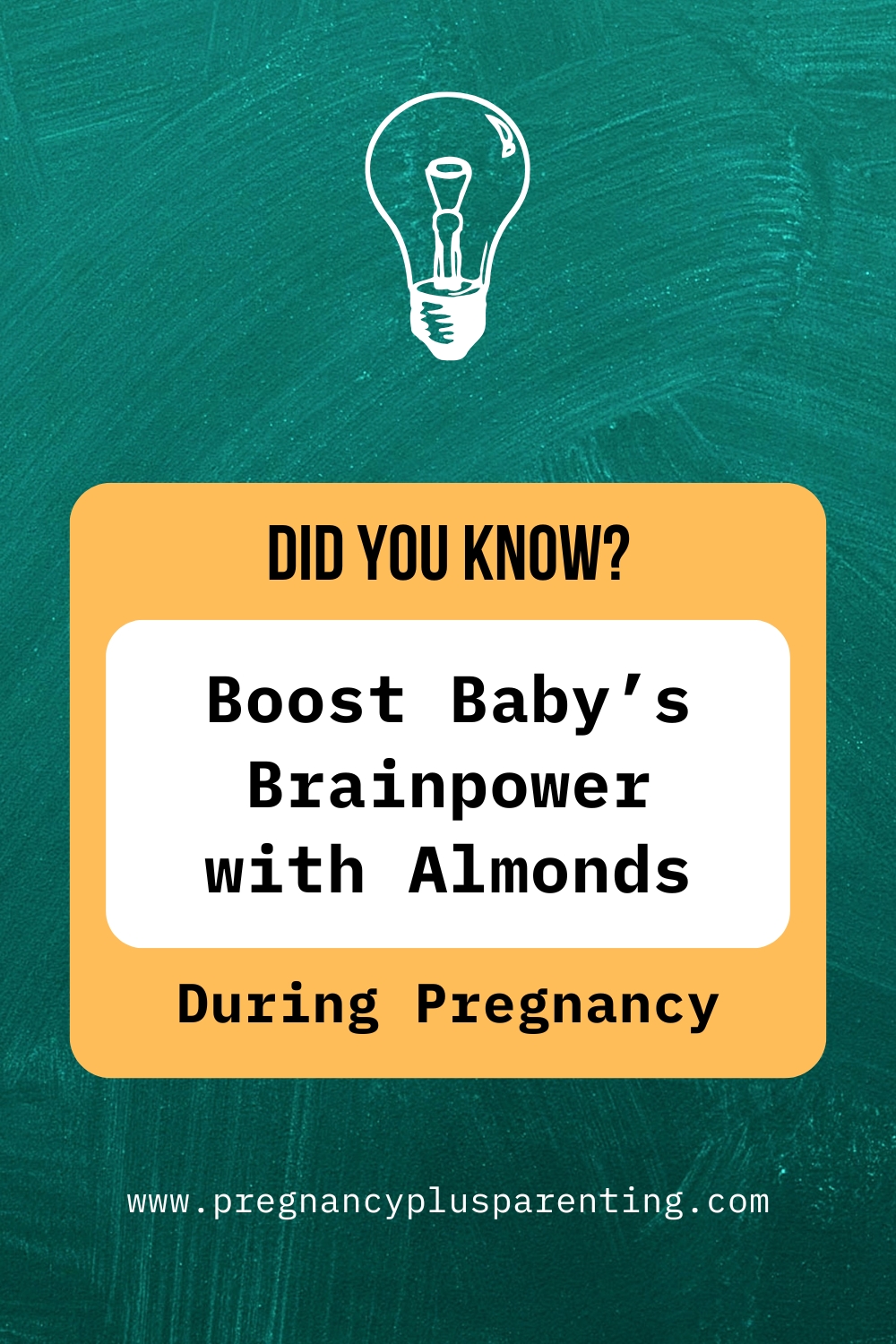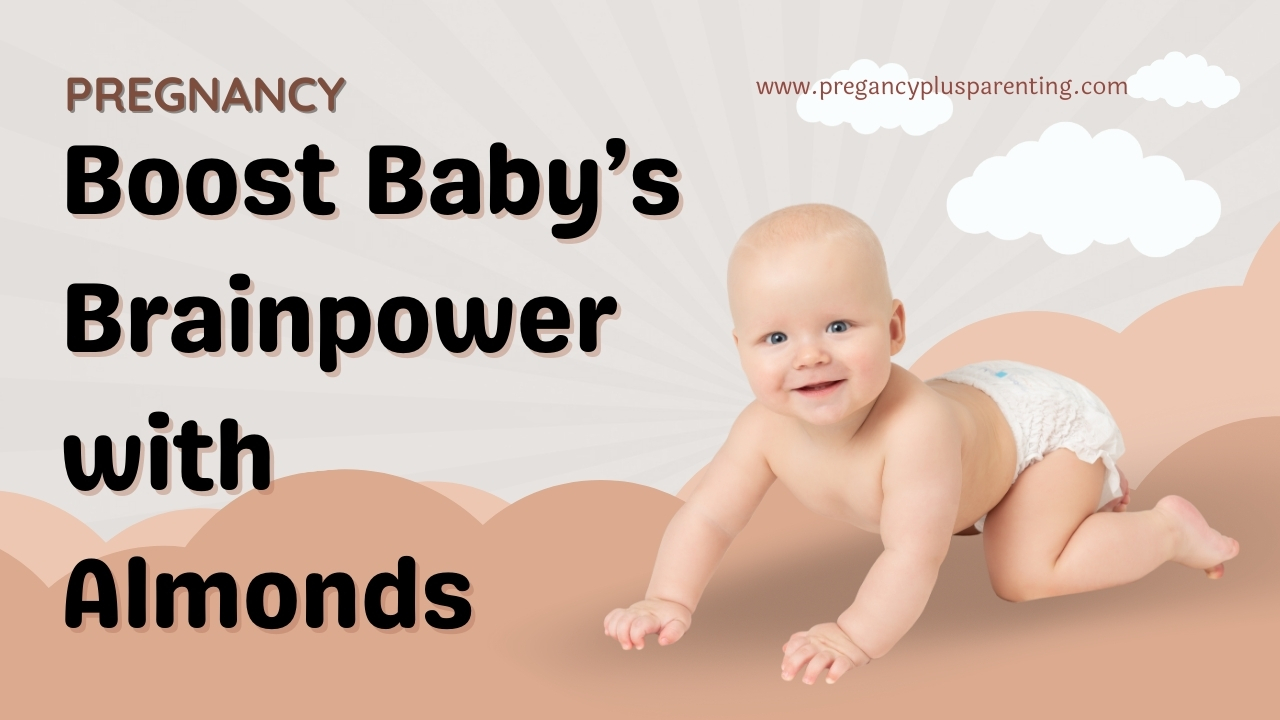Boost Baby’s Brainpower with Almonds
Nuts are often recommended for expectant mothers. Are almonds also healthy during pregnancy?
What good things are in it?
Or is there something to be considered, such as unpleasant side effects for mom and baby if consumed in excess?
What about other products like almond milk and almond yogurt? Should pregnant women keep an eye out for ingredients?
Are there any hidden contaminants? And what about processed almonds, such as roasted or chocolate-covered almonds?
In this article you will find the answers.
Why almonds are the perfect snack
Almonds are all-rounders and provide valuable nutrients and fats and support the body in fighting various ailments.
Pregnant women in particular are pleased that they are very effective against cravings.
But they can also relieve heartburn during pregnancy. If you chew them slowly, almonds bind the excess acid.
This makes life more bearable again.
Almonds have a particularly low glycemic index, namely 15 on a scale of 100.
Unlike sugar or simple carbohydrates, they cause blood sugar to rise slowly.
This makes it easier for the pancreas to produce insulin, preventing cravings.
Almonds and other nuts are rich in magnesium. Just about 20 grams of almonds covers 20% of your daily requirement.
The mineral is important for nerves and muscles.
Some pregnant women take magnesium supplements to relieve uncomfortable stretching of the ligaments , varicose veins and other pregnancy-related discomforts .
Vitamins B (from B1 to B12, the whole range) and E are also abundant in almonds.
The cells are supplied with energy and protected from free radicals.
The unsaturated fatty acids have a positive effect on blood lipid levels. This can even lower cholesterol levels.
Almonds are a true superfood and a handful of them a day is highly recommended!
Roasted almonds during pregnancy
Water and sugar are added to roasted almonds to caramelize them.
Sometimes they’re also flavored with ingredients like cinnamon or vanilla. However, there’s one major drawback to roasted almonds:
The sugar content. While they’re already high in calories, the added sugar makes them a real calorie bomb!
Delicious roasted almonds can easily tempt you to eat far more than is good for you and your baby.
You constantly hear and read everywhere that a healthy and balanced diet is particularly important during pregnancy .
Sweets and fatty snacks should be avoided.
If you do not regulate and moderate your consumption of foods high in sugar and fat, you run the risk of developing gestational diabetes.
Do not eat bitter almonds raw

Please be careful not to eat bitter almonds. They contain a substance that is harmful to us, which the body converts into toxic hydrogen cyanide during digestion.
So when you buy almonds at the market or at open stalls abroad, be careful not to be sold bitter almonds.
They are not easy to distinguish from sweet almonds in terms of appearance.
But they taste very bitter and sometimes unpleasant.
However, they are used for cooking or baking. Heating significantly reduces the amount of the toxic substance.
Almond milk during pregnancy
Cow’s milk substitutes are all the rage, but they’re not always a good idea. They often contain a lot of added sugar.
Almond milk, with 30 kilocalories per 100 ml, is anything but low in calories.
The almonds’ original nutrients are also significantly reduced in the sweet drink. This is due to the processing and dilution with water.
But almond milk isn’t harmful to you or your baby and has a wide range of uses. Vegans, in particular, appreciate this cow’s milk alternative in muesli, with coffee, or for cooking and baking.
As you probably already know, a vegan diet during pregnancy should be discussed with your doctor and gynecologist.
By the way, almond flour and almond oil (also as massage oil) are also worth a try and can enrich your pregnancy.
Attention: If you suffer from an underactive thyroid, you should avoid almond milk as a precaution.
It can negatively affect the absorption and utilization of iodine in your body.
Which nuts can you eat during pregnancy?
Whether almonds, hazelnuts or walnuts – every nut in its raw state is particularly healthy not only for you but also for your unborn child.
Mind you, in their raw state: You should avoid roasted almonds as well as roasted and salted peanuts.
Just as the wrong amount can turn a remedy into poison, eating too many nuts is counterproductive because of their high calorie content.
But a small portion a day can do wonders for your health and well-being and also give your baby in the belly an advantage.
In addition to proteins, folic acid (which is important when trying to conceive) , magnesium, calcium, zinc and B vitamins, nuts are rich in valuable omega-6 and omega-3 fatty acids.
This can only be good for your baby’s brain development in the womb. Remember how often you read about eating as much fish as possible, including fatty sea fish?
Yes, unfortunately you should avoid raw fish like sushi and smoked salmon, but luckily there are plenty of alternatives.
Because of the valuable omega fatty acids, the German Nutrition Society also expressly recommends the regular consumption of fish.
If you’re not a big fan of fish, you can also get healthy fatty acids from nuts.

A Spanish study comes to astonishing results
Researchers have actually shown a link between nut consumption in early pregnancy and strong cognitive abilities in children.
According to a 2019 study by the Barcelona Institute of Global Health, a nut-rich, healthy diet for mothers during pregnancy leads to particularly good long-term memory and attention development in their children.
In Spain, 2,200 mothers and their children were surveyed and examined.
The mothers reported on their eating habits and the children, aged one and a half, five and eight years, took standardized tests to determine their brain performance.
The children of mothers who consumed a lot of nuts, especially during the first 12 weeks of pregnancy, had the best cognitive performance results.
But even scientists don’t recommend consuming large amounts! 90 to 200 grams of nuts per week is perfectly sufficient to achieve positive effects.
And all raw nuts are recommended, from almonds, hazelnuts and walnuts to pine nuts and peanuts.
If that isn’t good news!
Final thoughts
No wonder you have a lot of questions when it comes to your baby’s well-being.
Alcohol, tobacco, and even caffeine in large quantities are taboo. However, even a careless diet poses the risk of listeriosis and toxoplasmosis.
These diseases are harmless to you, but can cause serious harm to the baby.
Malformations, premature labor, and even miscarriage can result. This is another reason why proper nutrition is especially important for pregnant women.
It is therefore better to avoid raw eggs and dairy products made from raw milk as well as raw meats such as salami.
You can eat almonds in small quantities during pregnancy.
You should even eat nuts more often, as according to a Spanish study, they have a very positive effect on your child’s cognitive abilities.
They contain important nutrients and trace elements, especially healthy omega fatty acids. Pistachios also contain similar active ingredients.
In general, foods such as fish, legumes, green vegetables such as lamb’s lettuce and broccoli, berries and nuts are best during pregnancy and while breastfeeding.







